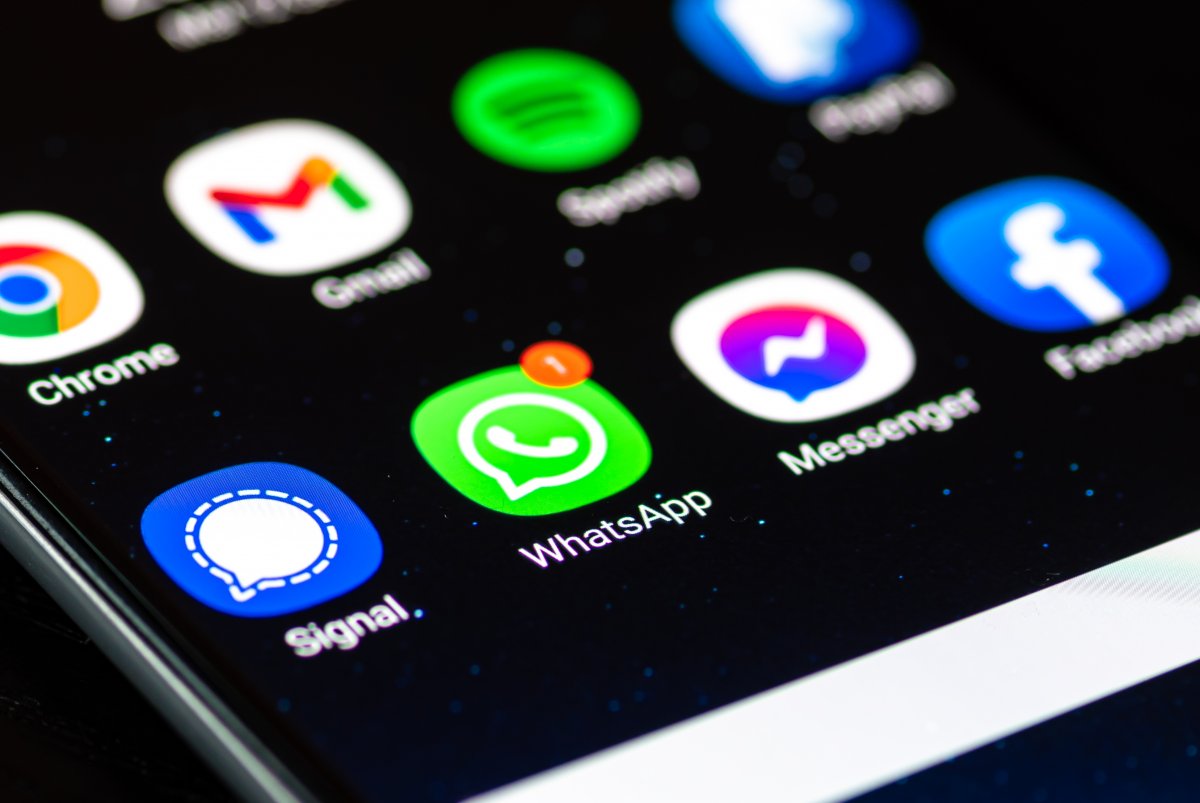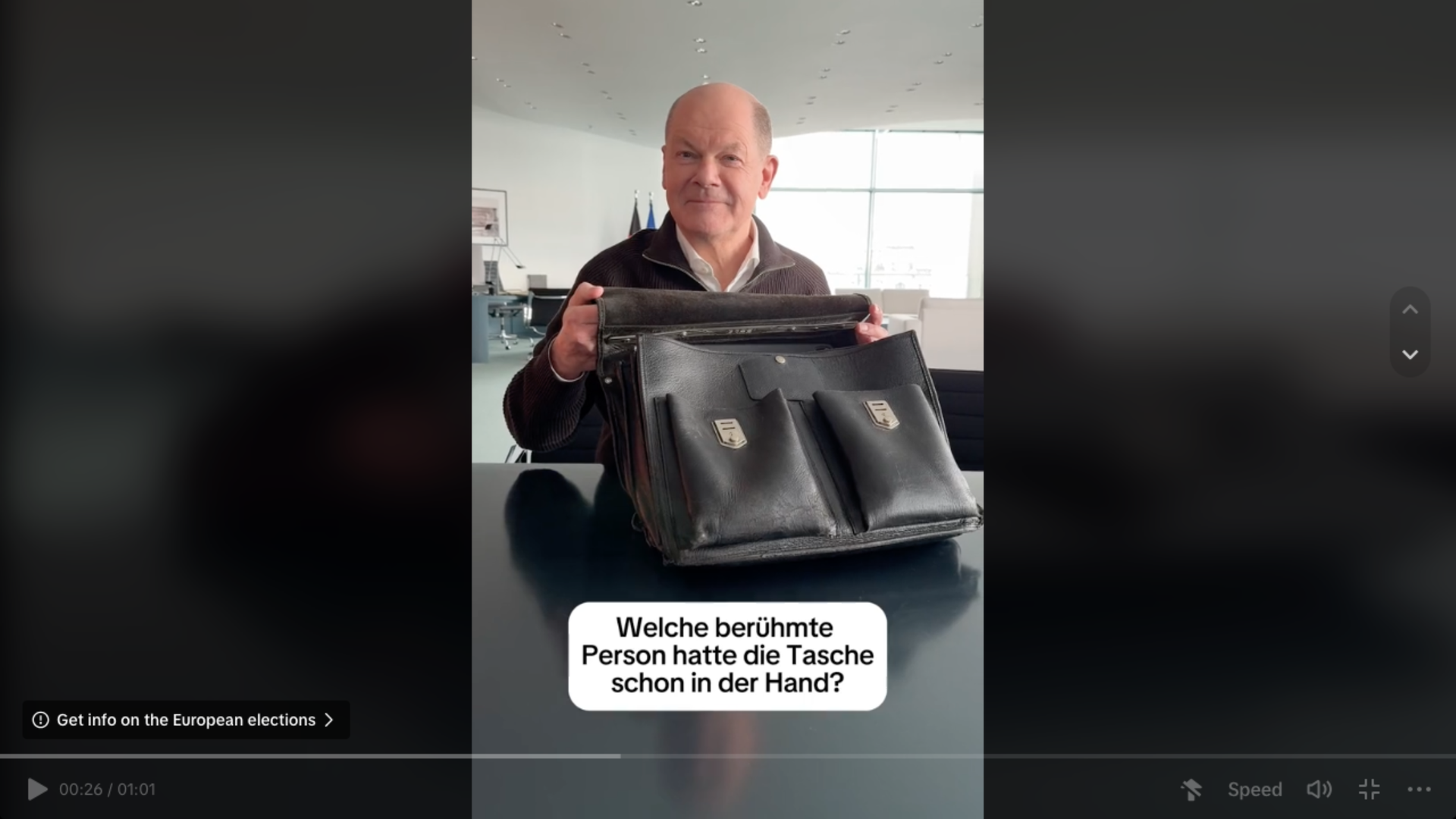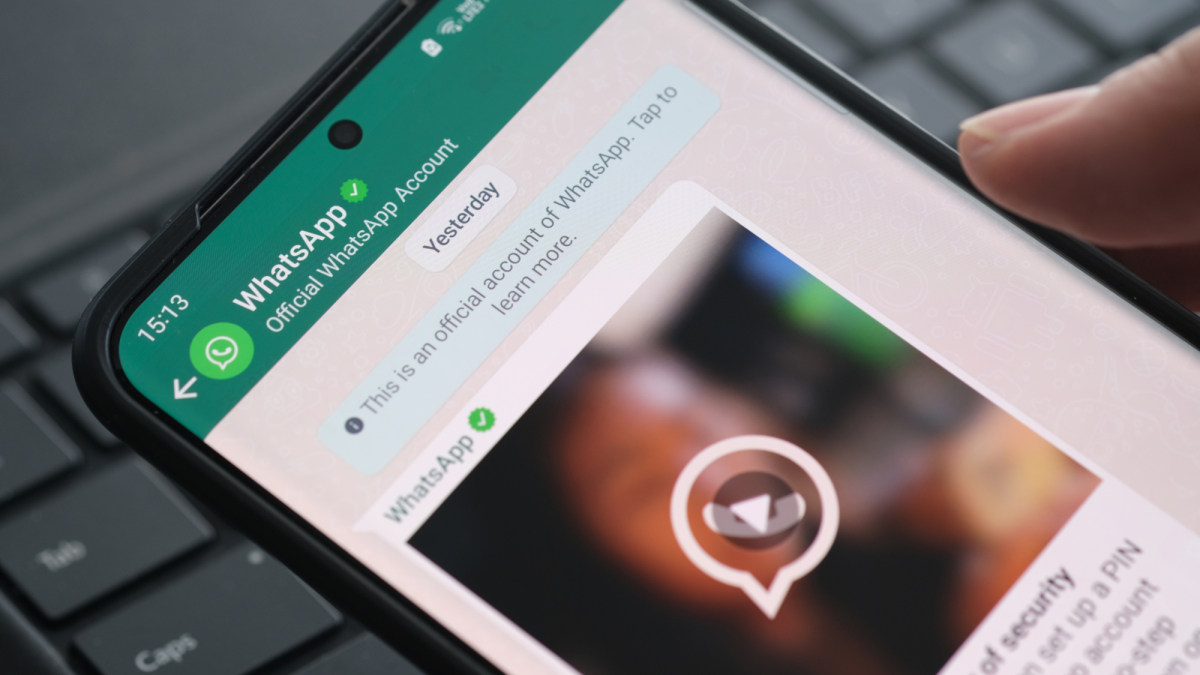Geef je niet over aan een monster als Zuckerberg
NRC (€)
Big Tech - Als WhatsAppweigeraar zou Jan Warndorff graag zien dat we beter nadenken over onze keuze voor de berichtenapp en over sociale media in het algemeen.
(Tekst loopt door onder de illustratie.)
Ik ben een principiële WhatsApp-weigeraar.
Maar dat heeft wel als onfortuinlijk gevolg dat ik word uitgesloten van allerlei groepen en activiteiten waaraan ik graag zou willen deelnemen. (...) [E]r is op mijn verzoek nog even gepolst of men naar bijvoorbeeld de alternatieve, non-profit en open source berichtenapp Signal zou willen overstappen, maar nee. (...)
WhatsApp wordt nu gebruikt zoals de publieke communicatiedienst PTT. Maar Whatsapp is een commercieel onderdeel van het megabedrijf Meta, in handen van die vreselijke meneer Mark Zuckerberg. (...) Dus de vraag die elke gebruiker zich moet stellen is: wil ik dat? (...)
Met het stijgend aantal zelfdodingen onder jongeren en jongvolwassenen wordt inmiddels steeds duidelijker hoe Meta daarbij letterlijk over lijken gaat. (...)
Gelukkig begint dat nu steeds meer door te dringen, dankzij bijvoorbeeld het recente boek van de psycholoog Jonathan Haidt, The Anxious Generation. Daarin werpt de auteur terecht de vraag op hoe het kan dat een bedrijfssector die welbewust erop uit is om vooral jonge mensen verslaafd te maken, en mentaal ziek en ongelukkig op de koop toe, geen strobreed in de weg wordt gelegd. En dat in een wereld waarin ouders hun kinderen zo bovenmatig willen beschermen dat alleen naar school toe lopen er nauwelijks meer in zit. (...)
En ik op mijn beurt verwonder me over het feit dat praktisch iedereen zich compleet onbezorgd aan zo’n monster als Mark Zuckerberg verbindt, en dat in een wereld waarin artiesten en mediafiguren compleet worden gecanceld als ze iets doen wat ons moreel niet bevalt. Dus toe nou mensen, luister naar je hart en toon je tanden, en knikker als eerste WhatsApp eruit! En vervolgens natuurlijk ook Instagram en Facebook. Een betere wereld begint echt bij jou.
Tags: #nederlands #boeken #big_tech #social_media #sociale_media #whatsapp #instagram #facebook #meta #berichtenapp #signal #jongeren #mentale_gezondheid #verslaving
One person like that
EU plan to force messaging apps to scan for CSAM risks millions of false positives, experts warn
https://www.yahoo.com/tech/eu-plan-force-messaging-apps-174641543.html
#privacy #surveillance #messenger #signal #whatsapp #chat #CSAM #EU
One person like that
1 Shares
Chatkontrolle: Verschlüsselte Messenger-Dienste sollen prioritär gescannt werden
Die belgische Ratsspitze will durchgängig verschlüsselten und anonymen Online-Services ein hohes Risiko zuschreiben, was Aufdeckungsanordnungen zur Folge hätte.
Von der #Chatkontrolle sollen vor allem durchgängig verschlüsselte #Messenger-Dienste wie #WhatsApp, #Signal und #Threema betroffen sein. Dies geht aus jetzt geleakten Dokumenten der belgischen #Ratspräsidentschaft hervor. Der aktuelle Vorsitz der #EU-Staaten will demnach die als sicher und datenschutzfreundlich geltenden Dienste als hochriskant einstufen. Gegen sie sollen dann Aufdeckungsanordnungen mit einer Dauer von bis zu 24 Monaten verhängt werden können. Während dieser Zeit müssten die Betreiber die #Kommunikationsdaten Strafverfolgern zugänglich machen. Kürzere Durchsuchungsbefehle oder andere weniger einschneidende Maßnahmen sollen verhängt werden können, wenn die #Verschlüsselung nicht standardmäßig, sondern per Opt-in aktiviert wird. Denn dann sei es möglich, dass "bestimmte #Erkennungstechnologien für die Kommunikation zwischen Nutzern" noch funktionierten.
1 Shares
Die deutschen Parteien entdecken Tiktok, Instagram & Co.
Social Media - Die deutschen Parteien entdecken Tiktok & Co.
Die Parteien in Deutschland setzen gerade stärker auf Social Media. Zu spät? Denn die AfD ist bereits seit Längerem damit sehr erfolgreich.#PARTEIEN #DEUTSCHLAND #SOCIALMEDIA #TIKTOK #Instagram #WhatsApp #AFD
Die deutschen Parteien entdecken Tiktok, Instagram & Co.
WhatsApp vs. Telegram vs. Signal
Data linked to you - The following data may be collected and linked to your identity:
Developer's Advertising or Marketing
Identifiers
Device ID
Usage Data
Advertising Data
Analytics
Purchases
Purchase History
Location
Coarse Location
Contact Info
Phone Number
User Content
Other User Content
Identifiers
User ID
Device ID
Usage Data
Product Interaction
Advertising Data
Diagnostics
Crash Data
Performance Data
Other Diagnostic Data
Product Personalization
User Content
Other User Content
App Functionality
Purchases
Purchase History
Financial Info
Payment Info
Location
Coarse Location
Contact Info
Email Address
Phone Number
Contacts
Contacts
User Content
Customer Support
Other User Content
Identifiers
User ID
Device ID
Usage Data
Product Interaction
Diagnostics
Crash Data
Performance Data
Other Diagnostic Data
Other Purposes
Contact Info
Phone Number
Identifiers
User ID
Device ID
Usage Data
Product Interaction
Telegram
Data linked to you - The following data may be collected and linked to your identity:
App Functionality
Contact Info
Name
Phone Number
Contacts
Contacts
Identifiers
User ID
Signal
Data not linked to you: The following data, which may be collected but is not linked to your identity, may be used for the following purposes:
App Functionality
Contact Info
Phone Number
2 Shares
Der #Öffentlich-Rechtliche-Rundfunk veruntreut #Steuergelder und die #Gebühren des kleinen Mannes, indem er immer häufiger kostenlose #Werbung für die #Datenkraken #Whatsapp, #Instagram, #TikTok, #Youtube usw. macht.
Und keine #Kontrollinstanz kümmert sich darum. Aber wehe ein #Sozialleistungsempfänger behält mal ein paar #Groschen für sich.
2 Likes
3 Shares

08.03.2024 Smartphone sicherer machen
Bedrohungen erkennen und stoppen
Wir sollten es wissen und wir sollten auch etwas dagegen tun: Mindestens die Big5 (GAFAM = Google, Amazon, Facebook, Apple, Microsoft), auch Kriminelle und eventuell staatliche Stellen beobachten, was wir im Netz tun, stehlen unsere persönlichen Daten oder erpressen unsere Zustimmung dazu.
Viele Beispiele zeigen, dass es nicht nur um lästiges und unbequemes geht, sondern dass es um unsere Privatsphäre und (informationelle) Selbstbestimmung geht und in vielen Fällen Menschen vor den Trümmern ihrer Lebensgestaltung stehen nachdem sie durch fehlerhafte Algorithmen zu False Positives gemacht wurden._ Denn wie soll man beweisen, dass man etwas nicht getan hat_ ... (Fatale Folgen fehlerhafter Algorithmen , Angreifer können Tastenanschläge einschleusen )
... wissen und tätig werden
Also, wenn wir das wissen, dass müssen wir überlegen, was dagegen zu tun ist. In beiden Fällen kann uns die App Rethink helfen. Die Quellen für das Open Source Programm gibt es für Android auf Github https://github.com/celzero/rethink-app.
Rethink für Android kann Aktivitäten von Apps überwachen und sperren, Zensur umgehen, Apps mit einer Firewall schützen und auch Werbung blocken. Zudem erstellt es Statistiken über Zugriffe. Es kann keine Deep Packet Inspektion, es arbeitet vor allem mit DNS (Domain Name Service). Rethink gibt es in F-Droid und im PlayStore und benötigt keine Root Rechte - aber Android ab Version 10. Zum Trace baut es ein telefoninternes VPN auf und läuft stabil und im Hintergrund, lesen wir auf Mastodon.
Im ersten Schritt wird man sich also damit ansehen, welche anderen Apps uns wie oft und wie lange bespritzeln und dann kann man dazu übergehen, diese oder jene zeitweise oder dauerhaft zu sperren. Man sieht dann recht schnell wie umfassend die Macht der Big5 inzwischen geworden ist und muss sich im einen oder anderen Fall sicher von der Sucht zu irgendeiner App trennen ...
Mehr dazu bei https://diasp.eu/posts/16680086
und https://social.tchncs.de/@kuketzblog/112039141232534433
und die App gibt es u.a. hier https://github.com/celzero/rethink-app
Kategorie[21]: Unsere Themen in der Presse Short-Link dieser Seite: a-fsa.de/d/3zp
Link zu dieser Seite: https://www.aktion-freiheitstattangst.org/de/articles/8707-20240308-smartphone-sicherer-machen.html
Link im Tor-Netzwerk: http://a6pdp5vmmw4zm5tifrc3qo2pyz7mvnk4zzimpesnckvzinubzmioddad.onion/de/articles/8707-20240308-smartphone-sicherer-machen.html
Tags: #Rethink #App #Android #Big5 #GAFAM #Google #Amazon #Facebook #Apple #Microsoft #Meta #Transparenz #Informationsfreiheit #AppStore #WhatsApp #DNS #VPN #Kontrolle #Sperre #F-droid #sicherheit
6 Likes

06.03.2024 Monopole lachen über DSGVO
Wer übertrifft wen?
- Meta verletzt diverse Prinzipien der Datenschutzgrundverordnung.
- Apple hat seine Marktmacht missbraucht und gegen EU-Kartellrecht verstoßen.
Zwei Feststellungen zu zwei der fünf Big5 (GAFAM = Google, Amazon, Facebook, Apple, Microsoft) über die wir leider schon viel zu oft schreiben mussten. Seit über 10 Jahren schraubt sich dieser Kampf in Form von Bußgeldern in immer wahnsinnige Höhen. Apple hat seine Konkurrenz bei Musikstreaming-Apps jahrelang benachteiligt und soll nun 1,8 Milliarden Euro Geldbuße zahlen, sagt die EU Kommission.
Bis zu einer wirklichen Zahlung wird sicher noch einige Zeit vergehen und dann sind das bei einem Jahresumsatz von über 500 Milliarden $ und einem Gewinn von 33 Milliarden $ die berühmten Peanuts, wie es der damalige Deutsche Bank Chef in einer ähnlichen Situation mal nannte. Unternehmen deren finanzielle Macht die von Staaten weit übersteigt, sind mit Bußgeldern nicht klein zu kriegen. Trotzdem freuen wir uns darüber.
Was waren die Vergehen?
Spotify hatte gegen Apple geklagt, weil der Apple App Store exklusiv ist, um überhaupt Apps auf Apple Geräten zu installieren. Apple knüpft den kostenpflichtigen und exklusiven Zugang an bestimmte Bedingungen. App-Entwickler:innen dürfen ihre Nutzer:innen z.B. in einer App nicht über günstigere Musikabonnements informieren, die sich außerhalb der App beziehen lassen. Diese Beschneidung der Informationsfreiheit wird von Apple mit unternehmerischer Freiheit und dem Wettbewerbsrecht begründet.
Doch genau gegen das Wettbewerbsrecht verstößt diese Regel und das ist nicht neu, sondern seit mehr als 10 Jahren geübte Praxis. Die EU-Kommission nennt solche Praktiken vorsichtig "weder notwendig noch angemessen" und sie würden "unlautere Handelsbedingungen" darstellen.
Meta nicht besser
Europäische Verbraucherorganisationen haben bei Datenschutzbehörden Beschwerde eingelegt, weil Meta von den Nutzer:innen der Plattformen Facebook und Instagram in der EU verlangt, entweder der Verarbeitung ihrer Daten zu Werbezwecken zuzustimmen oder zu zahlen, um keine Werbung angezeigt zu bekommen, schreibt Netzpolitik.org.
Von den 8 Mitglieder der Europäischen Verbraucherorganisation (BEUC) wird kritisieren, dass Meta sein Vorgehen in irreführende Informationen versteckt, und dass die hohen Gebühren von 12,99 Euro pro Monat zur Werbefreiheit in keinem Verhältnis stehen. Meta nutzt dabei seine Marktmacht, praktisch ein Monopol bei WhatsApp, aus, weil die Menschen ihre "Freunde" mit hoher Wahrscheinlichkeit nur dort vorfinden.
Auch verhängte Bußgelder gegen Meta, z.B. hatte die irische Datenschutzbehörde DPC eine 1,2 Milliarden Euro Strafe wegen der Übermittlung von Facebook-Daten aus der EU und dem Europäischen Wirtschaftsraum an die USA verhängt, wurden bisher nicht gezahlt. Eine Berufung dagegen durch Facebook wurde im Juli 2023 durch den Europäische Gerichtshof (EuGH) mit einem Urteil zurückgewiesen.
Auch in diesen Fällen gilt die Feststellung, dass Meta mit 135 Milliarden $ Umsatz und 56 Milliarden $ Gewinn im letzten Jahr dies gut verschmerzen könnte, aber mit dem Geld auch teure Anwälte bezahlen kann, die die EU am Nasenring vorführen können.
Diese Konzerne gehören zerschlagen! Selbst die FTC, die vor Jahrzehnten noch bereit waren At&T zu zerschlagen, trauen sich an solche Riesen heute nicht mehr ...
Mehr dazu bei https://netzpolitik.org/2024/meta-europaeische-verbraucherverbaende-gehen-gegen-illegale-datenverarbeitung-vor/
und https://netzpolitik.org/2024/marktmacht-missbraucht-apple-handelt-sich-milliardenbusse-ein/
Kategorie[21]: Unsere Themen in der Presse Short-Link dieser Seite: a-fsa.de/d/3zn
Link zu dieser Seite: https://www.aktion-freiheitstattangst.org/de/articles/8705-20240306-monopole-lachen-ueber-dsgvo.html
Link im Tor-Netzwerk: http://a6pdp5vmmw4zm5tifrc3qo2pyz7mvnk4zzimpesnckvzinubzmioddad.onion/de/articles/8705-20240306-monopole-lachen-ueber-dsgvo.html
Tags: #Big5 #GAFAM #Google #Amazon #Facebook #Apple #Microsoft #Meta #Transparenz #Informationsfreiheit #EU #Klage #Bußgelder #Spotify #AppStore #Zwang #Konkurrenz #Monopol #WhatsApp
3 Likes
"Primero el #SMS, después llegó el #WhatsApp, ahora graban un #MensajeDeVoz, y tu amigo te graba la respuesta.
Si siguen así van a inventar el #Teléfono." -
https://twitter.com/CapturasGaming/status/784014722794393600/photo/1 - ou -
https://www.facebook.com/gloria.feitosa.98/posts/1172601996084803 -
Via Gloria Feitosa - Saul Fuks -
[ Já esteve aqui. É tão bom que voltou ] - 2016 - [FB] -
1 Comments
De heroïne van sociale media wordt gratis verstrekt aan kinderen, terwijl volwassenen de andere kant op kijken
Jamal Ouariachi (Trouw)
(...) Dan heb je nog de sector Breinverpulvering. Die deed het in 2023 nóg beter. Alphabet, moederbedrijf van Google, noteerde alleen al in het vierde kwartaal van 2023 een winst van 20,7 miljard dollar, terwijl Tech-gigant Meta (onder meer Facebook, Instagram en WhatsApp) over heel 2023 een nettowinst van 39 miljard dollar binnenharkte. (...)
(Tekst loopt door onder de foto.)
Delen we in de winst, wij als contentleveraars? Haha, tuurlijk niet.
“Nou, daar ben je toch zelf bij, sukkel?”
Klopt. Ik ben niet te beroerd om mijn eigen stupiditeit onder ogen te zien, maar laten we eerlijk zijn: ik heb zo ontiegelijk veel mede-idioten – alleen al Facebook telt 3 miljard gebruikers, herstel: gebruikten. (...)
Het ergste is misschien dat die heroïne gratis wordt verstrekt aan kinderen, terwijl volwassenen de andere kant op kijken of preciezer: op hun eigen telefoon zitten te turen. TikTok, Snapchat, X, Instagram, Facebook, Whatsapp en Discord konden onbelemmerd uitgroeien tot platforms waar massaal kinderporno wordt verspreid, waar cyberpesten aan de orde van de dag is, waar drugshandel floreert en waar handige tips rondgaan over hoe je het best zelfmoord kunt plegen. (...)
Wonderlijke soort zijn we toch. We schenken onze ziel en onze centen aan precies de bedrijven die alles wat ons dierbaar is kapotmaken: onze omgeving, onze kinderen, ons brein.
Tags: #nederlands #sociale_media #social_media #facebook #alphabet #google #isntagram #whatsapp #tiktok #snapchat #x #discord #kinderporno #cyberpesten #drugs #zelfmoord #kinderen
#Interoperabililtät #whatsapp #signal
Aber ist es auch in der anderen Richtung möglich - von Signal zu WhatsApp?
https://www.teltarif.de/whatsapp-interoperabilitaet-drittanbieter-chats/news/94391.html
1 Comments



:format(webp)/s3/static.nrc.nl/bvhw/files/2024/05/data115586511-4e1407.jpg)
/s3/static.nrc.nl/bvhw/files/2024/05/data115586511-4e1407.jpg)









